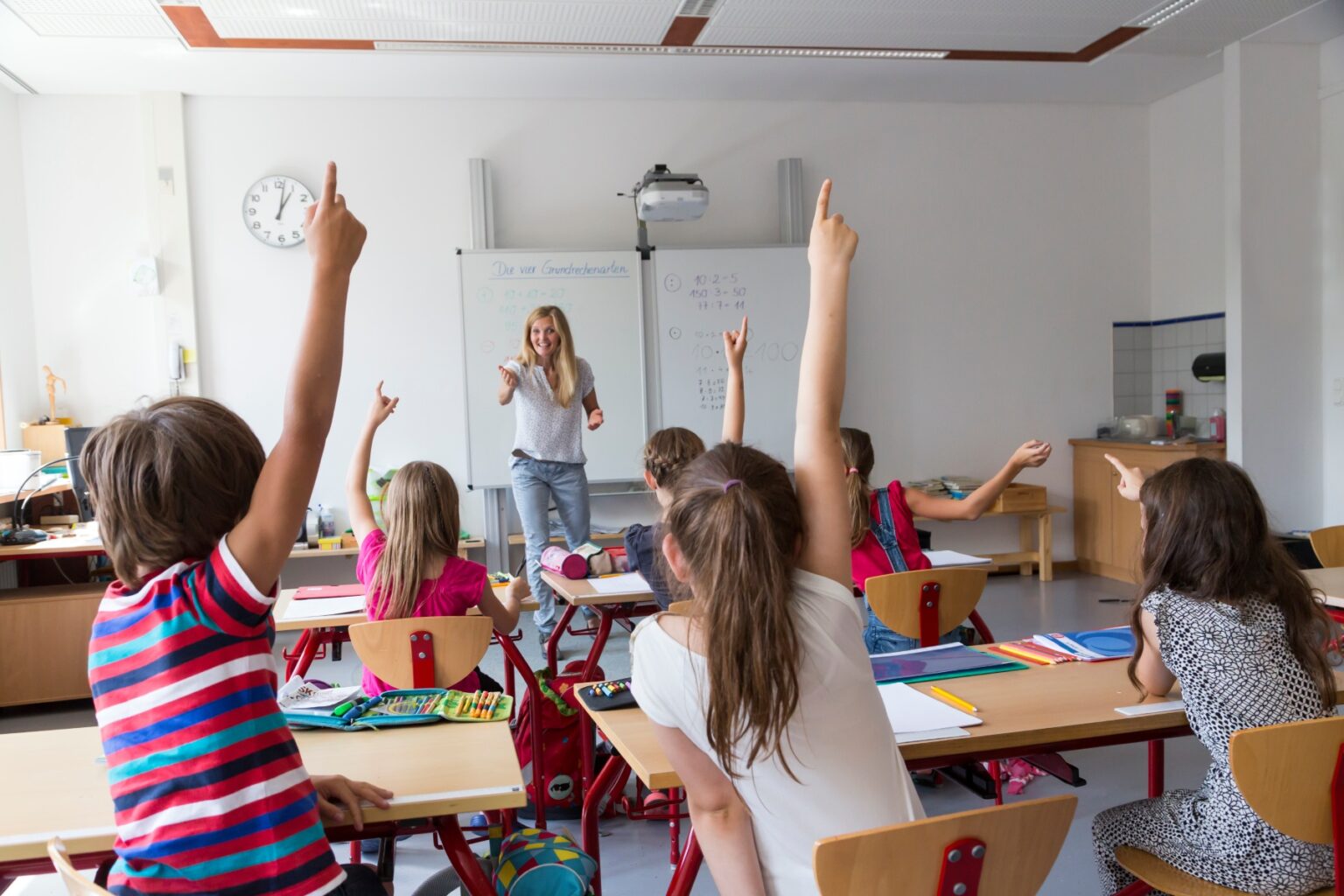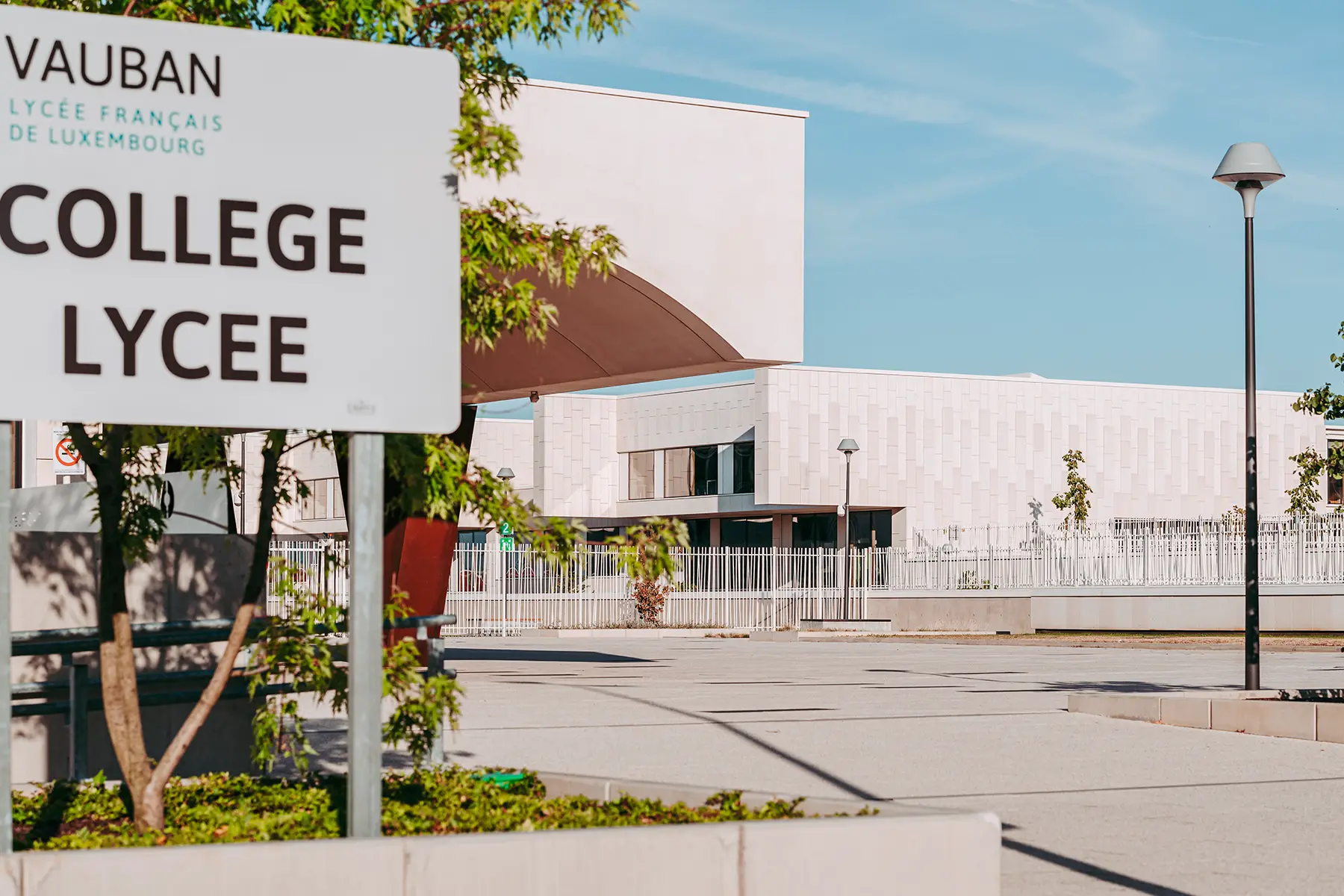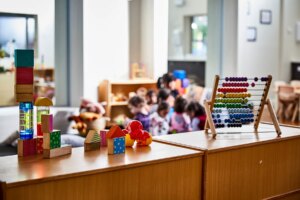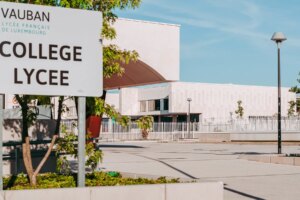Understanding the educational system in Luxembourg can seem complicated at first, especially when it comes to primary education. The variety of languages spoken in the Grand Duchy can also make the process feel a little overwhelming for expats looking for the most suitable school for their child.
So, to make the journey as smooth as possible, and help you make an informed decision, this article outlines the following information:
The primary education system in Luxembourg
Primary education in Luxembourg lasts for eight to nine years and is divided into four learning cycles, or grades levels, according to the child’s age:
- Cycle 1 (Spillschoul): age 3 to 5
- Cycle 2: age 6 to 7
- Cycle 3: age 8 to 9
- Cycle 4: age 10 to 11
Cycle 1 is the equivalent of preschool education and generally covers three years. The first year, which is known as précoce, is optional and available to children of three years. However, school is mandatory from the age of four in Luxembourg. Notably, the first language spoken at school is Luxembourgish (in Cycle 1), followed by French and German (in Cycles 2 to 4).

In principle, each learning cycle covers a period of two school years. However, this can vary from one to three years, depending on the student’s ability to acquire the necessary skills bases (socles de compétences).
Primary school children in the country can attend public, private, or international schools, however, as of 2020, the vast majority (89%) are enrolled in public ones. Of these students, 98% are following the Luxembourg national curriculum, while 2% are learning an international curriculum. Of the 11% of primary school children attending private establishments, the majority (98%) are enrolled in alternative educational pathways, rather than the Luxembourgish national syllabus.
Interestingly, primary school students in Luxembourg have 924 hours of compulsory instruction per year, which is above the OECD average of 804. Lower secondary school pupils, on the other hand, have 845 hours, which is less than the OECD average of 916.
Public primary schools in Luxembourg
There are 156 public primary schools in Luxembourg. They are grouped into 15 local education directorates (directions de l’enseignement fondamental) and are managed by the state and municipalities. Each education directorate has an inspector who supervises teaching activities and coordinates the professional teams.
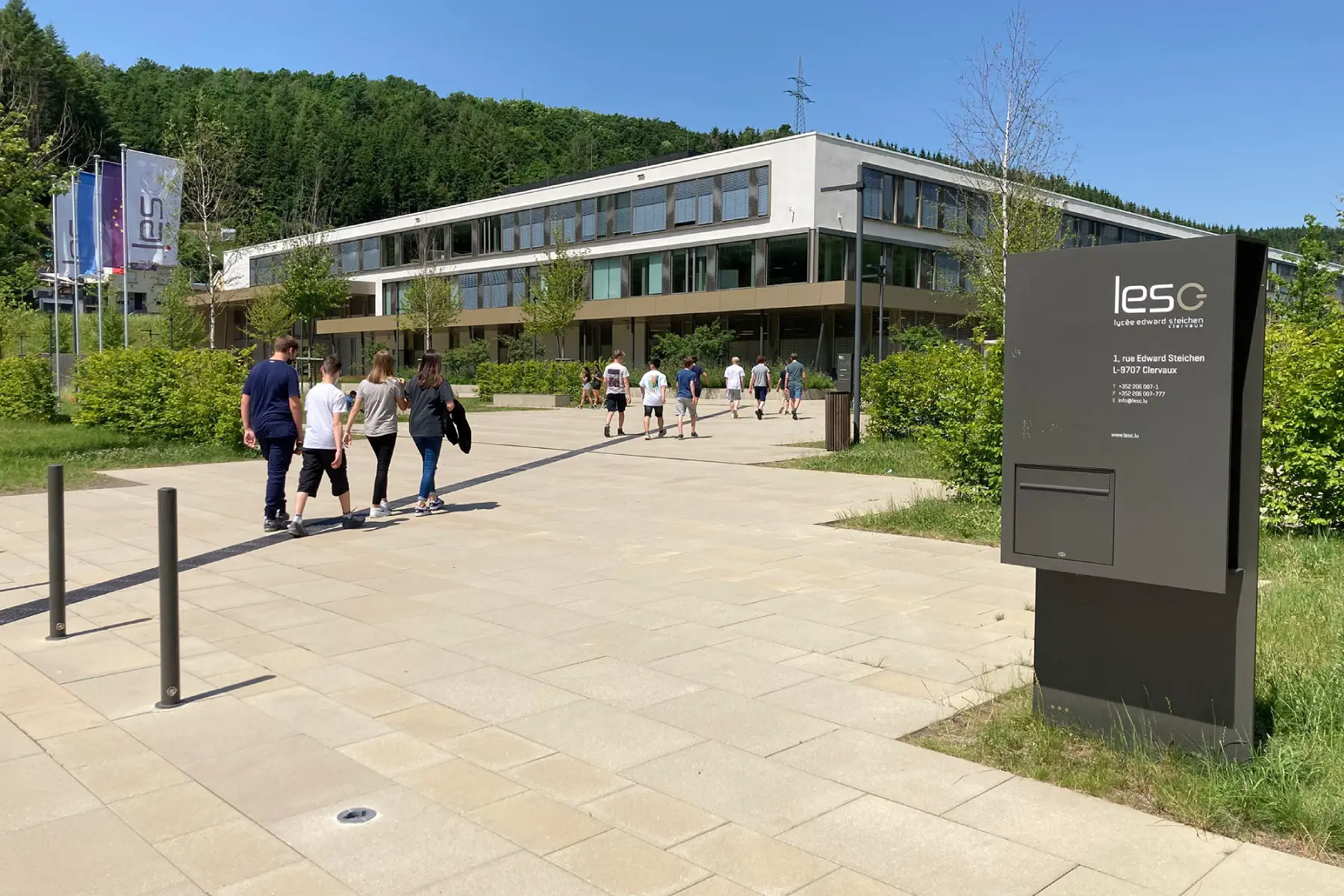
The Ministry of Education, Children and Youth (Ministère de l’Éducation Nationale, de l’Enfance et de la Jeunesse or MENJE) funds public primary schools in Luxembourg which means that they are free of charge.
The majority of these schools follow the same curriculum, however, there are three that offer alternative teaching approaches:
- Eis Schoul (Kirchberg): operates according to the principles of inclusive pedagogy where all children are accepted in their diversity and learn, each at their own pace, to become independent, responsible, able to interact with others, and assert their opinion while respecting those of others
- Jean-Jaurès (Esch-sur-Alzett): a continuous day school where periods of work, free time, and rest follow one another in continuity, and learning and living are closely linked components of school life
- Villa Mirabella (Wiltz): also works under a continuous day structure with a fixed schedule from Monday to Friday, including 27 hours of free school lessons and 13 hours of paid-for activities
Public international schools
There are six public international schools in Luxembourg that follow the European school system and curriculum. They offer French, English, and German-speaking sections at the primary level. They are also tuition-free and open to all students:
- Differdange et Esch-sur-Alzette (EIDE): offers French, English, and German-speaking sections from primary school onwards
- Gaston Thorn (EIGT): provides French, German, and English-speaking sections from primary level
- International School Michel Lucius: provides an English-speaking curriculum at the primary level
- Lënster Lycée International School: offers French, English, and German-speaking sections from preschool onwards
- Lycée Edward Steichen: offers French, English, and German-speaking sections from preschool onwards
- Mersch Anne Beffort (EIMAB): offers French and English-speaking sections from primary school onwards, and a German-speaking section from secondary school onwards
- Mondorf-les-Bains: offers French and English-speaking sections from primary school onwards
The schedule in public primary schools
In general, the schedule in public primary schools consists of three full days and two half days. Full days are Monday, Wednesday, and Friday, from 08:00 to 16:00 with a two-hour lunch break, and half days are Tuesday and Thursday, from 08:00 to 11:45. On average, there are 20 students per class.

The school year in Luxembourg generally starts in the middle of September and ends in mid-July. There are several school holidays throughout the year, as follows:
- October/November (All Saints Day holidays): 1 week
- December/January (Christmas holidays): 2 weeks
- February (Carnival/Winter holidays): 1 week
- March/April (Easter holidays): 2 weeks
- 1 May (public holiday)
- 9 May (public holiday on Europe Day)
- May/June (public holiday on Ascension Day)
- May/June (public holiday on Whit Monday)
- May/June (Pentecost holidays): 1 week
- 23 June (public holiday for the public celebration of HRH the Grand Duke’s birthday)
- July/August (Summer holidays): 2 months
The curriculum in public primary schools
During Cycle 1, the learning process in public primary schools focuses on the social development of children. Diversified situations enable students to have meaningful interactions with both their peers and teachers. According to the Ministry of Education, some of the main learning fields are psychomotricity, creative expression, life in the community, culture, and awareness of languages.
Later on, in Cycles 2 to 4, children learn about literacy, German, French, and Luxembourgish, as well as mathematics and sciences. Culture, health, and music are also part of the curriculum. Physical education (P.E.) is also mandatory, however, the hours dedicated to it can vary.
Notably, newly-arrived international students who are four or five years of age go directly to Cycle 1, where they learn Luxembourgish. Then, from Cycle 2 onwards, they attend a regular class (which is called a classe d’attache or linkage class) as well as intensive language classes (cours d’accueil or reception courses) or support courses (cours d’appui). During these courses, they are taught German and/or French.
At the end of each cycle, students must acquire the skills bases to advance to the next cycle. Teachers assess the children through tests, work, and observations, and have an individual exchange (entretien individuel) with parents at the end of each school term. During these meetings, they discuss the child’s progress and the next steps.
Each year, parents receive two school reports which monitor their child’s progress: the intermediate report (bilan intermédiaire), which is issued at the end of each term, and the end-of-cycle review (bilan de fin de cycle), which – as the name suggests – comes at the end of each cycle.
You can read more about these learning areas and assessments on the Ministry of National Education, Children, and Youth website.
The pros and cons of public schools
There are many benefits to studying in a public primary school in Luxembourg. For instance, they are free and more abundant, meaning that they are likely to be located closer to the child’s home. This is not only convenient for parents, but can also help to create a sense of community for the child. Moreover, these schools tend to have a diverse range of students who come from various social backgrounds and incomes which can be good for the cultural and social development of those attending.

On the flip side, public schools often have fewer resources as they rely on state funding, which can be limited. Furthermore, the shortage of teachers and the fact that Luxembourg achieves below-average results for early childhood education – when compared to other European countries – can be a concern for parents.
Applying to public primary schools
When you move to Luxembourg, you must register your family at the commune of your residence. By doing this, the municipality automatically enrolls your child in the public school designated for that place of residence.
As school admissions start in August, enrollment usually takes place in March or April of the entry year. Parents should receive a letter from the communal administration to start the process by 15 April. This provides details regarding the start of compulsory schooling for the child and their registration at the designated school in the commune. It will also include an attached enrollment form. If you don’t receive a letter and form by 15 April, you should contact the communal administration and ask for one.
To complete the enrollment, parents must go to the commune’s administration department (or education department) and bring the following documents with them:
- The family record book
- Their child’s birth certificate
- The enrollment form
After this, they will receive an acceptance letter that contains relevant information about the chosen school such as schedules and term dates.
Notably, if you move to Luxembourg in the middle of the school year, you should contact your local education department directly. They will then inform you about the procedure for enrolling your child in the upcoming quarter.
Private primary schools in Luxembourg
Private primary schools in Luxembourg follow a variety of curriculums and teach in multiple languages. For instance, there are those that offer the same curriculum as public ones, such as Notre-Dame Sainte-Sophie in Neudorf-Weimershof. Then there are private schools that teach under alternative methods, such as Montessori or Waldorf, and are subsidized by the state. And finally, there are private international schools that teach a variety of curricula and are subsidized by the state or the European Schools organization.
Montessori and Waldorf schools
There are three private schools in Luxembourg that follow the Montessori and Waldorf methods of teaching. Although they are independent method schools, they remain under the supervision of Luxembourg’s regions and must abide by national education law. They are also subsidized by the state:
- Ecole Maria Montessori (French/German – Montessori)
- Fräi-ëffentlech Waldorfschoul Lëtzebuerg (French – Waldolf)
- Montessori à Hobscheid (Luxembourgish, French, and German – Montessori)
The Montessori method was developed in the early 1900s by Dr. Maria Montessori. She believed that a child’s autonomy is the base of their education. For this reason, teachers at Ecole Maria Montessori and Montessori à Hobscheid encourage self-directed activities and hands-on learning, while providing an environment for children to develop their social abilities, love for learning, creativity, and confidence.
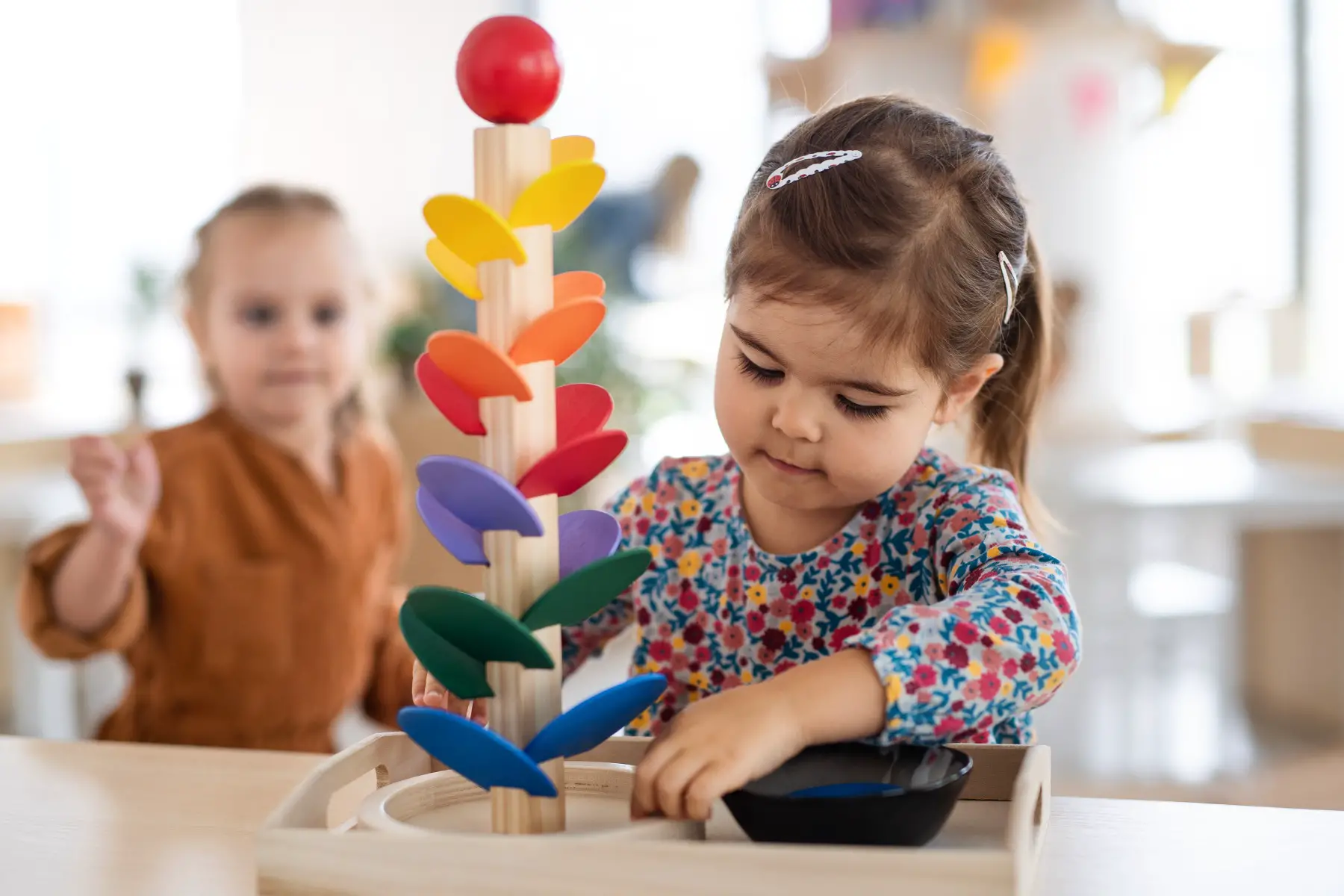
The Waldorf method, on the other hand, was created in 1919 by the philosopher Rudolf Steiner. It centers on three areas: the head (thinking), the heart (feeling), and the hands (doing), and allows children to develop by following their natural rhythms. Therefore, the Waldorf curriculum, such as the one taught at Fräi-ëffentlech Waldorfschoul Lëtzebuerg, combines academic subjects with arts and practical skills.
International schools in Luxembourg
Some international schools in Luxembourg receive subsidies from the government which can make them more affordable to parents. Nevertheless, it is important to check the individual school websites to find out how much the fees are, as they can vary significantly. For instance, in 2022, preschool fees started from €10,550 per year at Over The Rainbow (OTR) and €17,015 at the International School of Luxembourg (ISL). In addition, there is often a non-refundable application fee to factor in.
It is also worth noting that these schools teach a different curriculum from public primary schools in Luxembourg. Therefore, you will need to carefully research them to find the best option for your child.
The following international schools teach a different curriculum and are subsidized by the state:
- Charlemagne (French)
- International School of Luxembourg (ISL) (German and French)
- Lycée Français de Luxembourg (French)
- Over the Rainbow (OTR) (English and French)
- Scuola Materna Cattolica Internazionale (Italian-English/English-French/Italian- French)
- St. George’s International School Luxembourg (English-only or French-English bilingual route)
Aside from these, there are two private international schools in Luxembourg that are set up, financed, and operated by the European Schools organization, and managed by the European Union and European Commission. These are the European School Luxembourg 1 (ESL1) in Kirchberg and European School Luxembourg 2 (ESL2) in Mamer. Both schools provide English, French, and German sections at preschool and primary levels, and ESL2 also comprises Czech, Danish, Greek, Italian, and Hungarian sections.
The pros and cons of international schools
While local schools in Luxembourg provide good facilities and educational opportunities for students, some parents prefer to enroll their child at an international school as they tend to offer more when it comes to languages, sports, and after-school activities. What’s more, students can maintain their native tongue, which can help them integrate more easily into their new life.
Since international schools cater to foreign students, the environment is also more multicultural, which can aid the overall development of the child. Private schools, on the other hand, tend to offer a more closed environment with students from similar backgrounds and incomes, which can limit their diversity.
However, on the downside, international school fees can still be high, despite the subsidies from the state, which can make them unaffordable to some families. You can read more about this in our article on how to choose a good international school.
Useful resources
- Ministère de l’Éducation nationale, de l’Enfance et de la Jeunesse – provides information on the educational system in Luxembourg
- Montessori – offers information about the Montessori teaching method
- Waldorf Education – offers information about the Waldorf teaching method
